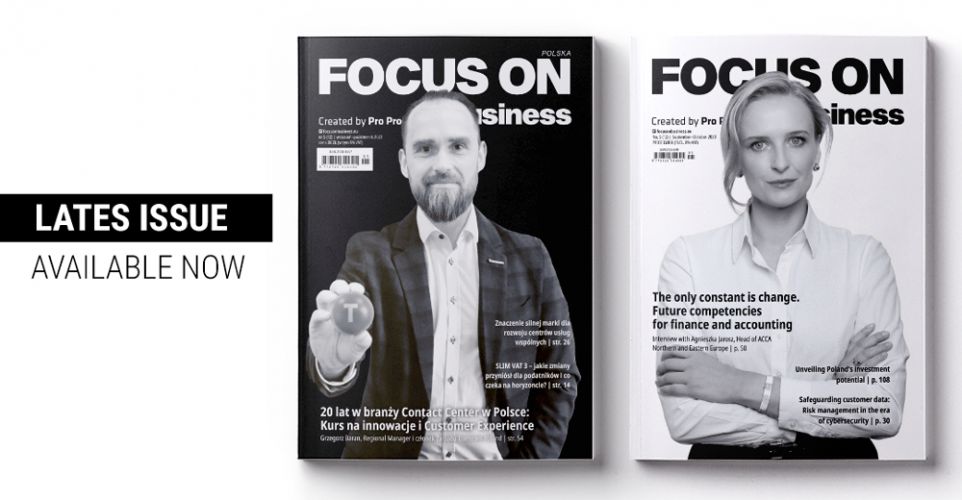Employee benefits – future and trends

What types of job offers are a winning proposal in today's employee market? Which employee benefits are the most desirable? And is there a universal benefits package that would cover today’s employees' diverse needs?
In recent years, the labor market has undergone a revolution. The pandemic and the resulting need to reformulate the way work is done has, on one hand, opened up a range of opportunities for employees who value remote forms of cooperation, and on the other hand, has challenged employers to create a proposal that would bond teams and build their commitment and loyalty in dispersed structures. Fruit Thursdays, relaxation rooms or game consoles in offices make little sense today, when a significant portion of employees' time is spent remotely.
Wellwork or wellbeing?
Even at the beginning of the pandemic, we saw a growing interest in benefits involving psychological support or concern for wellbeing of the employees; today, however, we know that this is an intimate and personal space that in fact requires distancing oneself from work, rather than tightening ties with the employer. It requires the employer to understand and respect employees' personal challenges, concerns and needs.
This is confirmed by the words of Ariana Huffington, founder and CEO of Thrive Global, an American company that offers solutions that nurture the employees' well-being and influence their behavior: The pandemic made it impossible to ignore what was already a growing mental health crisis. The task now is to move from awareness to action. It’s about helping people spot the warning signs of mental health challenges so that they can seek the help they need, make the changes they need to make, and live the lives they want, not ones they resign to.
Manpower Group report “Workforce trends 2023” also emphasizes the importance of work balance as an important factor of employees’ wellbeing. Work balance, work culture and management’s expectations with regard to employees are more important than additional benefits. A vast majority of workers (81%) say the pandemic has affected how they think about work. Nearly a third (29%) of employees say they wish their manager would better understand the effort they put into completing tasks, and as many as 48% of surveyed employees confirm that they overwork regularly in any given week. Work balance and work culture are essential needs of employees, requiring care and concern of employers. If this area is neglected, there is no way benefits would build employee satisfaction, commitment and loyalty.
In a personal rhythm
Adam Grant, Professor of Management and Psychology, Wharton School, University of Pennsylvania, stresses that if there is a positive side to the COVID-19 pandemic, it is certainly the redefinition and realignment of priorities. According to the researcher, today's workers don't want the work to be the center of their lives. What they care about is planning, working in accordance with the rhythm of life, not the other way around. A key competence for organizations, therefore, is the flexibility to create jobs that would take into account personal priorities of different groups. Not only for white-collar workers, but also for blue-collar workers, warehouse workers, graphic designers, content-creators, people of mature age or young families. It's difficult, because there are as many different needs as there are employees. It’s not impossible, though.
Customization of job offers is not a new phenomenon, although it is definitely more desirable today. One of the latest "hits" among benefits is the 4-day work week. The aforementioned Manpower Group survey results demonstrate this growing need. 4 out of 10 employees would be willing to give up 5% of their salary in exchange for a 4-day work week. Some companies in the U.S. and Ireland have piloted a shorter work week, and it appears that 97%1 of employees would like to continue that option. Hybrid work also fits the personal needs of many employees, which is why it is very popular and has in itself become a competitive advantage for companies that offer it. Such a work model is preferred by 42% of respondents, who appreciate the flexibility, the choice and the control they have over how they perform their duties and combine them with their personal lives. So much so that if an employer demanded a return to the offices full-time, as many as 64% of respondents would consider changing jobs.
A healthy hierarchy of values
Personal life and health have returned to the top of employees' value hierarchy. Every third employee would take another job if offered better possibilities of combining personal and professional life. Asynchronous work is the future of the labor market (42% of surveyed employees think so), as it allows one to take care of what is most important: health and relationships with loved ones. And these are the most important concerns of Poles today.
According to the Polish Insurance Association's "Risk Map of Poles," the three greatest worries of Poles are: death of a loved one, lack of money for treatment of a serious illness, and a serious illness of a loved one. Regardless of gender, age or place of residence, we worry about our health more than ever. On one hand, the "credit" should go to the pandemic, which revealed the fragility of health and how very democratic the threat of disease is.
On the other hand, we are aware of the difficulties the healthcare system is facing and how difficult it is to get access to medical services. A LuxMed analysis shows that as many as 1.7 million Poles perceive their health after the pandemic as worse, and 40% of them had to forgo or postpone treatment during the pandemic, or pay for it out of pocket using private medical services. It's therefore not surprising that concern for health and securing the means to deal with a possible bout of illness are the priori ties of Poles today; for employers, it's an important signal as to which direction the employee benefit system development should take.
Tailored benefits
We all know how illness in the family changes the colors of our lives and how many needs it triggers, including financial ones. In today's economic environment and in view of the healthcare systems still recovering from the pandemic, access to private medical services and additional money for treatment is the ideal answer to the needs of workers. And there is hard evidence for this: 83% of Poles believe that insurance is useful (PIU's "Poles' Risk Map") when bad things happen in life, and 72% of employees consider life insurance offered by employers to be important (Agora, Ariadna Panel).
It is important for employers as well. Should an employee experience health difficulties, it's good for him to have the kind of coverage that would help him deal with health problems, significantly affecting the speed and quality of his treatment and ensuring a quick return to work. Good group life insurance not only guarantees payment of a benefit in case of a covered illness, but also ensures quick access to a doctor, medical consultations, tests or treatments. This applies to an increasingly wide catalog of diseases: oncological, cardiovascular, civilizational diseases (such as diabetes, thyroid disease, celiac disease), mental illnesses (e.g., schizophrenia, depression).
In light of trends regarding flexibility and the need to customize job offers, life insurance follows the needs of employees. For any group insurance, an employee can buy a special supplement rider depending on individual needs or life circumstances. Such coverage can support both the employee and his or her loved ones in case of illness, for example, as well as protect the future of their children.
Support that builds loyalty
Customization options are not limited to the scope of protection. Employers are offered a range of options, which can be used to distinguish particular groups of employees by sponsoring selected protection packages or setting insurance amounts that are, for example, a multiple of the employee's salary, rather than a fixed set amount. In such a situation, in case of a covered event, the insured receive a very high benefit, which is not only a real help in case of health problems, but also provides vital support for the family in case of prolonged sick leave of the breadwinner.
Such a benefit contributes to building employee loyalty, helps retain talent and, above all, is an unequivocal expression of the employer’s concern for what is most precious: human life and health.
Authors:
Aleksandra Polakowska-Szymańska, Director of Offer and Product Development, Unum Życie TUiR S.A.
Łukasz Świerczek, Board Member at Unum Życie TUiR S.A.
This article comes from magazine:
FOCUS ON Business #12 September-October (5/2023)
 Check the issue
Check the issue







